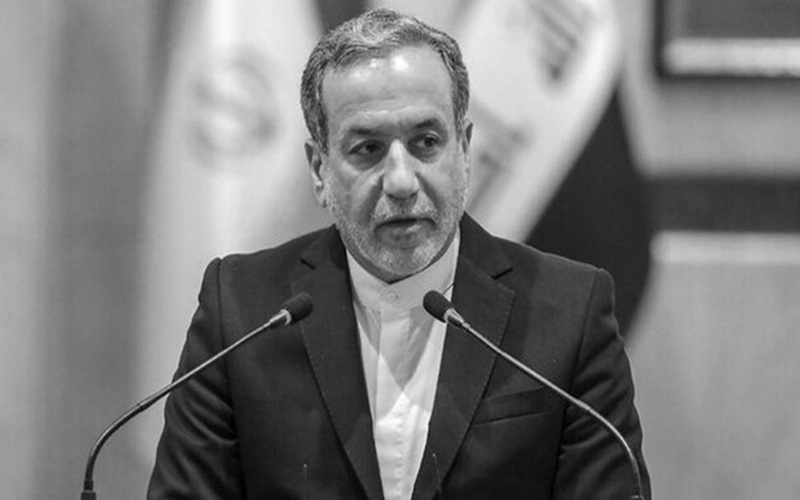Araghchi’s claim that “war can be cheaper than negotiation” exposes the clerical regime’s willingness to sacrifice Iranian lives to cling to power
For decades, the Iranian people have been forced into a war of survival—not against a foreign enemy, but against the regime itself. They have endured poverty, sanctions, medicine shortages, polluted water, blackouts, food insecurity, and above all, the suffocating despair imposed by the ruling clerics.
Now, the regime’s foreign minister Abbas Araghchi has unveiled another battlefront. He declared: “Sometimes war is inevitable; negotiations and diplomacy are cheaper and less risky ways, but sometimes their cost is even greater than war.”
These words are not accidental. They are calculated propaganda, designed to soften public opinion and prepare society for another disaster. War is now being portrayed not as a tragedy, but as a supposed “solution” — a tool for the regime’s survival as its downfall draws near.
From denial to glorification of war
Only weeks ago, Araghchi insisted war was not on the horizon. Today, he speaks of its “benefits.” Why the sudden shift? Because the regime has run out of options. The JCPOA is dead, sanctions remain, Washington refuses to negotiate on missiles or uranium enrichment, and Tehran knows the snapback mechanism will be triggered.
With no cards left to play, the regime falls back on its oldest tactic: crisis-making and war. But whose war is this? Not the war of those who hide in luxury villas and fortified bunkers. It is a war in which the poor, the unprotected, and the voiceless must pay with their lives.
A regime incapable of defense
The 12-Day War already exposed the regime’s weakness. Tehran could not withstand even limited strikes. It lacks effective air defenses, civilian shelters, or any credible plan to protect its citizens. Another war would leave the people exposed and defenseless while the ruling elite shields itself.
This would not be a war of equals. It would be an asymmetrical slaughter in which the first and last casualties are ordinary Iranians — people who have no role in the regime’s decision-making but are forced to bear all of its consequences.
Khamenei’s war, not Iran’s war
Araghchi himself knows he is no decision-maker. The real orders come from the supreme leader, Ali Khamenei. The question is obvious: when the people have no say in foreign policy, why must they always pay the price of its failures?
For Khamenei, war is not about national defense. It is a temporary lifeline — a way to delay collapse, intensify repression, and silence dissent. The people have seen this before. During the eight-year Iran-Iraq war, Ruhollah Khomeini called the conflict a “blessing,” exploiting it to crush opposition and tighten his grip on power. Millions of Iranians paid the price with blood, displacement, and ruined lives.
War rhetoric is regime policy
Araghchi’s remark that “war can be cheaper than negotiation” is not a slip of the tongue. It is a policy line — a declaration that the clerical regime is willing to sacrifice countless Iranian lives for its survival. Whether it is labeled “resistance,” “imposed peace,” or “holy defense,” the outcome is the same: the Iranian people are made to pay.
Iran is already in a state of war — a silent war visible in rising poverty, despair, and social collapse. To add a military conflict on top of this reality would not “save” Iran, but destroy it even faster.
For the regime, war may buy a few more months of life. For the Iranian people, it promises only death, destruction, and betrayal.
